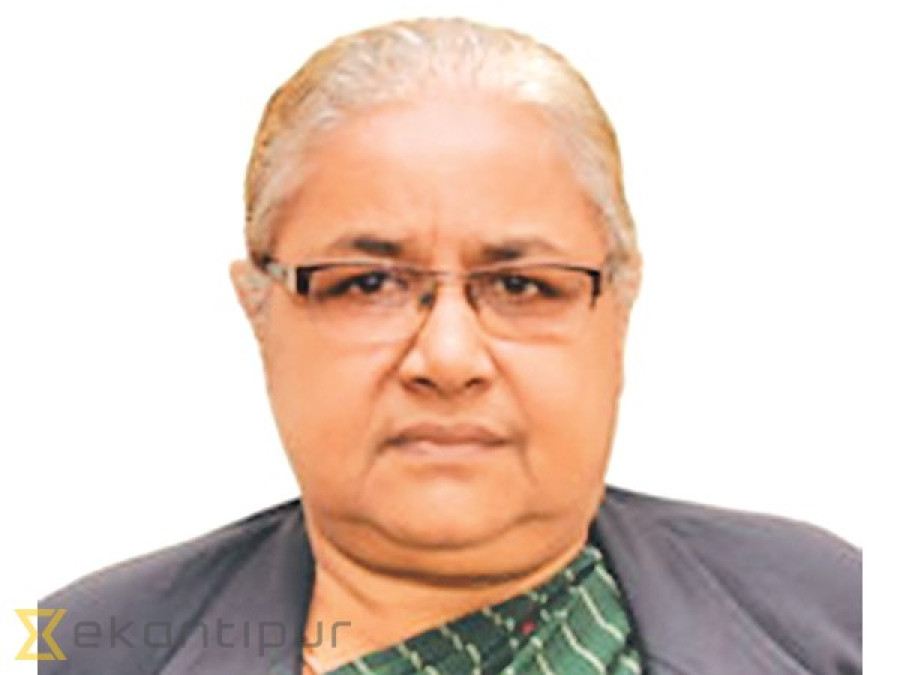Valley
JC picks Karki as first female chief justice
The Judicial Council on Sunday recommended senior-most Justice Sushila Karki as the chief justice of the Supreme Court, picking her as the country’s first female CJ.
Bhadra Sharma
The Judicial Council on Sunday recommended senior-most Justice Sushila Karki as the chief justice of the Supreme Court, picking her as the country’s first female CJ.
A meeting of the council decided to send her name to the Constitutional Council (CC), the body responsible for approving the head of the judiciary. Karki will take charge once the President appoints her following the CC nod.
“The council has decided to recommend eligible justice of the Supreme Court since incumbent CJ Honb’le Kalyan Shrestha is retiring on age ground,” said JC Secretary Krishna Giri. CJ Shrestha retires on April 13. Traditionally, the chief justice goes on a leave a month before his term expires.
Karki’s nomination is considered as yet another milestone in women’s leadership in the state mechanism. Last year, Nepal elected Bidhya Devi Bhandari as the President and Onsari Gharti as the Speaker of Parliament.
Karki is known for her zero tolerance against corruption in the judiciary. Born in June, 1952 in Biratnagar, she had joined the apex court as an ad-hoc justice upon recommendation from the Nepal Bar Association. She holds a post-graduate degree in political science from Banaras Hindu University, India, and a law degree from Tribhuvan University. Since November 18, 2010, Karki has been serving as a permanent judge.
She will remain at the helm for around 13 months. As an apex court justice, Karki has issued a number of landmark verdicts. She was among the judges who convicted sitting Minister for Information and Communications JP Gupta of corruption.
In January, the bench including Karki had ordered the government not to give amnesty to UCPN (Maoist) leader Bal Krishna Dhungel. The bench had ruled out the decision of then-Cabinet led by Baburam Bhattarai to grant amnesty for Dhungel, who was convicted of murdering Ujjan Kumar Shrestha of Okhaldhunga during the Maoist insurgency.
No fresh decision on justice nomination
The Judicial Council made no decision for resending to Parliament the recommendations for appointment of 11 Supreme Court justices.
Before attending the JC meeting, Law Minister Agni Kharel had met Speaker Gharti with an aim to resolve the dispute amicably. Gharti had sent the names back to the JC citing the inability to conduct parliamentary hearing for the nominees.
“The issues will be settled through mutual understanding,” a source privy to the meeting said.
The government seems defiant about changing the names or delaying the justice appointment process.
“The recommendations cannot be changed. The JC can resend the names by incorporating the CJ candidate,” said Kharel.




 16.12°C Kathmandu
16.12°C Kathmandu












